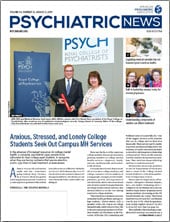By the fall of 2015, life was looking up for 30-year-old Jessica Grubb. She had a job, was running long distances, and had stopped using heroin, an addiction she developed in college.
Grubb was seven months into her recovery when she underwent surgery to treat a hip infection. She was discharged with 50 tablets of oxycodone for pain and a central catheter port in her arm for intravenous antibiotic treatment. A day later, she died of an overdose. Tragically, Jessica’s story is just one of many. One of the culprits here is 42 CFR Part 2. This little-known federal regulation dating back to the 1970s often results in patients’ records for treatment of a substance use disorder (SUD) being kept separate from the rest of their medical records. Intended to ensure confidentiality, the regulation often makes it harder for many of the patient’s other health care professionals to access this medical information or coordinate care.
The problem today is that 42 CFR Part 2 does not align with the Health Insurance Portability and Accountability Act (HIPAA), which was enacted in 1996. Now 42 CFR Part 2 is known as “the click law,” said Kenneth Certa, M.D., an associate professor at Sidney Kimmel Medical College at Thomas Jefferson University. Certa is an APA senior delegate on the AMA Section Council on Psychiatry who helped shape the AMA’s recent resolution on 42 CFR Part 2 (
Psychiatric News). “When providers receive an inquiry about a patient’s treatment for substance use,” he said, “they are likely to say, ‘I can’t even divulge whether or not I’ve treated that patient.’ Click.”
What’s more, the regulation is less protective in some ways than HIPAA, Certa added, because it does not require patients to be notified of a data breach or lead to prosecution for confidentiality violations. The segregation and omissions caused by 42 CFR Part 2 can also be a stumbling block in the drive to fully integrate electronic health records.
“It was important in its time,” said Certa. “It was written to encourage heroin users to enter methadone treatment by ensuring their records would remain confidential and not be used by law enforcement. There was no HIPAA back then, only a patchwork of state privacy laws.”
APA has been advocating for reform of 42 CFR Part 2 over the past few years and supports passage of legislation re-introduced in April that would align the privacy protections of 42 CFR Part 2 with those of HIPAA for purposes of treatment, payment, and health care operations. The proposed legislation would also strengthen protections against the use of addiction treatment records in criminal, civil, or administrative proceedings and heighten protections against discrimination based on a patient’s history of substance use disorder.
The Senate bill is titled the Protecting Jessica Grubb’s Legacy Act (S 1012), and the corresponding House bill is the Overdose Prevention and Patient Safety Act (HR 2062). Similar legislation stalled in the last Congress.
APA has powerful allies in this modernization effort: In addition to the AMA, APA has joined forces with the Partnership to Amend 42 CFR Part 2, a coalition of more than 40 national health care organizations and specialty treatment providers working toward the same goal.
One of the biggest challenges to the reform effort is that few patients or their physicians have ever heard of 42 CFR Part 2 or know how it works, explained Kali Cyrus, M.D., an assistant professor at The Johns Hopkins University School of Medicine who recently completed her term as APA’s Jeanne Spurlock Congressional Fellow. Physicians and medical students are well versed in HIPAA and those obligations, but not in 42 CFR Part 2, she explained.
To further complicate matters, access to a patient’s record may vary by location: Physicians working within large, integrated health systems with electronic health records may be able to access SUD treatment records within that system, but not outside it. “We can’t see records for care that was obtained off site, at a private rehabilitation facility, for example,” Cyrus said.
Cyrus worked in the office of Sen. Chris Murphy (D-Conn.) to help educate U.S. lawmakers about 42 CFR Part 2 and the need for reform.
Elie Aoun, M.D., the vice chair of APA’s Council on Addiction Psychiatry, explained that most physicians are not aware of the need for multiple records releases. “It allows for a lot of information to fall through the cracks,” he said. As a result, a patient with severe anxiety who comes to a community clinic might receive a prescription for a benzodiazepine, which can lead to a fatal overdose if that patient is taking opioids or opioid agonists.
Aoun said that even if patients are forthcoming about their SUD, a lack of access to their treatment records leaves physicians without important information about which medications have already been tried or what led to past relapses. “This can result in delays in starting lifesaving treatment,” he said. ■
Use APA’s online tool to contact your federal lawmakers and urge them to cosponsor S 1012/HR 2062
here. More information on this topic is posted
here.

